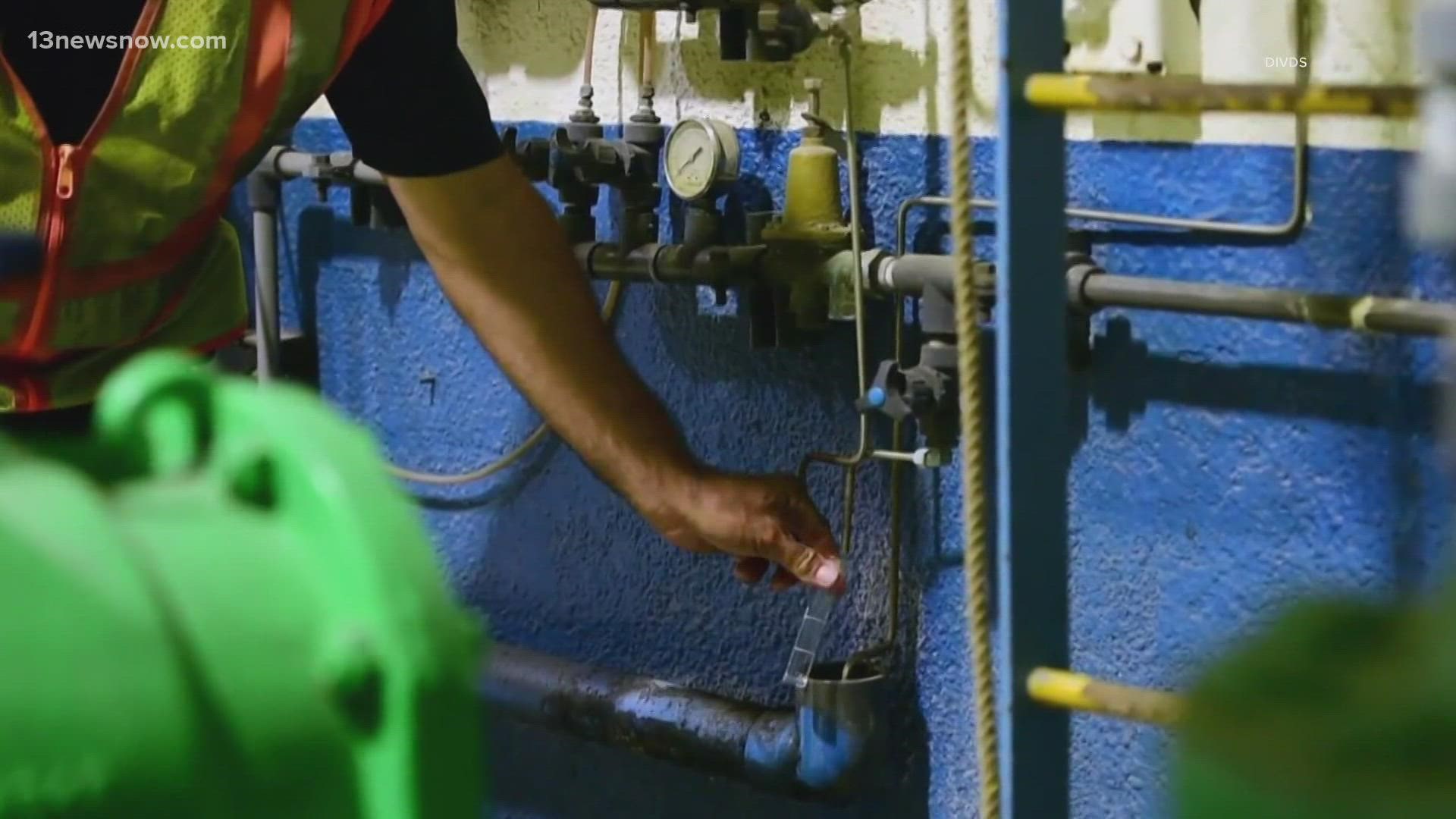WASHINGTON — Navy leaders have accepted responsibility for a major fuel spill in Hawaii, citing "operator error."
The mishap contaminated drinking water, possibly impacting up to 93,000 people.
It all began in late November with reports of a "chemical smell" in drinking water at some military homes in Hawaii. 14,000 gallons of JP5 jet fuel had leaked at the World War II-era Red Hill Fuel Storage Facility near Pearl Harbor. The spill contaminated drinking water, sickened more than 5,000 people, and drove 3,500 military families from their homes.
The facility holds about 180 million gallons of fuel and it sits about 100 feet above a groundwater aquifer that supplies 77 percent of the island of Oahu's total water.
At the House Armed Services' Subcommittee on Readiness hearing on Tuesday, the Navy said the water crisis has so far cost $250 million.
"I want to say, the Navy caused this problem, we own it, and we're going to fix it," said Rear Admiral Blake Converse, U.S. Pacific Fleet Deputy Commander. "Nothing is more important than the health, safety, and well-being of our families, our military residents, our neighbors, and the communities we call home."
In light of the immense clean-up costs, some lawmakers questioned the future value of Red Hill. But Navy leaders said the facility in Hawaii is vital to maritime security and regional stability in the Indo-Asia-Pacific region.
If the current problems in Hawaii have a familiar ring to them, they should. In 2016, the Navy discovered toxic per and poly-fluoroalkyl substances (PFAS) -- sometimes known as "forever chemicals" -- from firefighting foam in groundwater that fed into drinking wells near Fentress Field in Chesapeake. Wells on six properties had levels of PFAS higher than the EPA standard.
The Navy provided those residents with bottled water. According to the Government Accountability Office, the price to clean up PFAS at Fentress and 700 other affected bases is $2.1 billion.
Then in 2017, 94,000 pounds of JP5 jet fuel from Naval Air Station Oceana spilled into Wolfsnare Creek in Virginia Beach. The Navy charged a sailor with dereliction of duty, and it spent $3.8 million on the cleanup and helping affected families.
Despite the mishaps, the Navy maintains its sailors are "stewards of the sea."
The Department also funds over $20 million per year for marine mammal research, and it has spent more than $300 million on the effort in the past decade.

